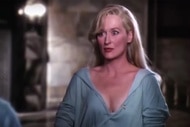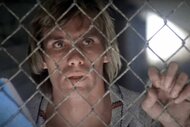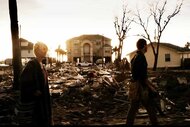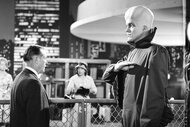Create a free profile to get unlimited access to exclusive videos, sweepstakes, and more!
Looking back on Star Trek's deep faith dive
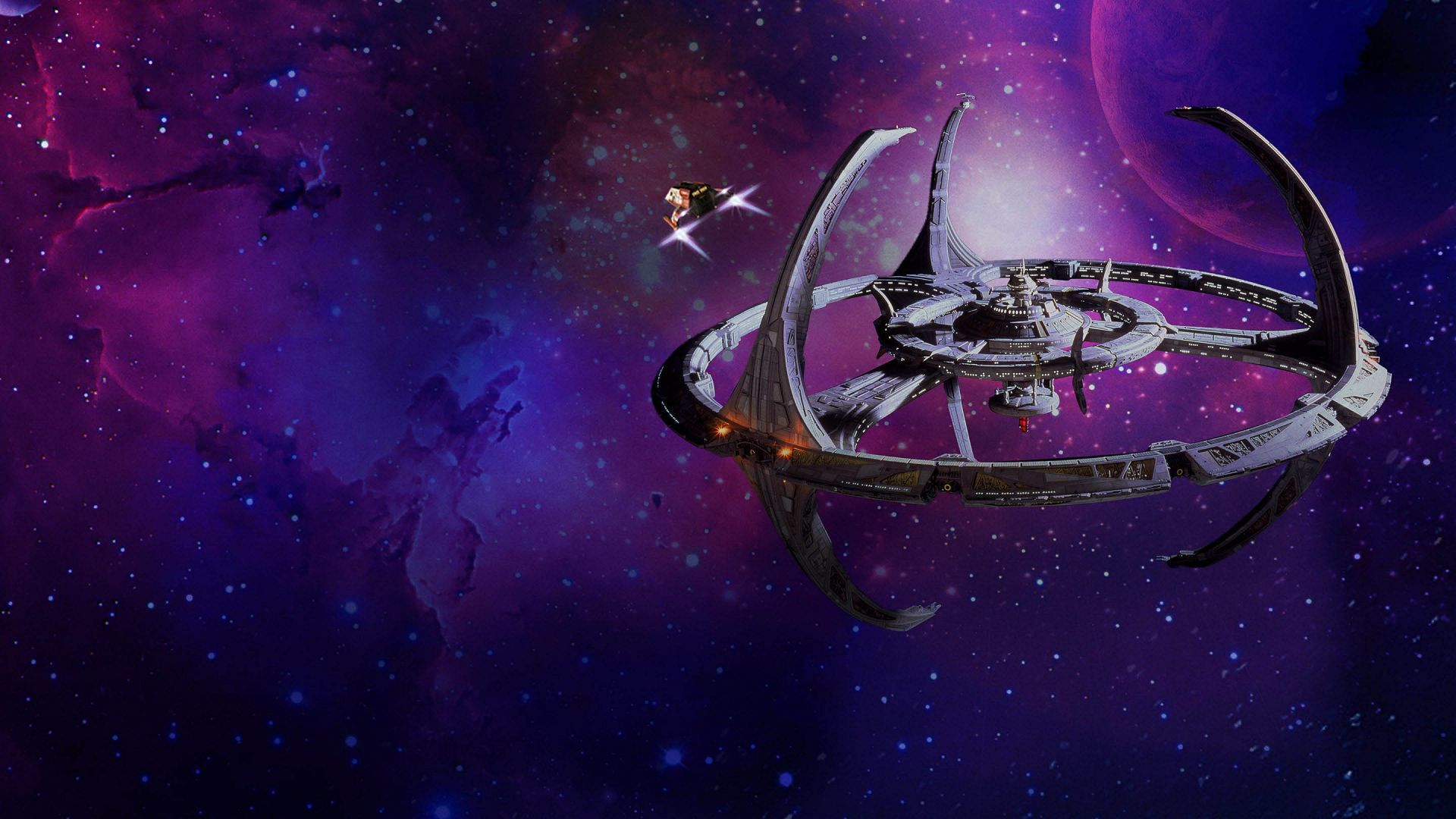
For all the harmony and diversity of Star Trek's Federation, something you’ll rarely see practiced by the crew of a starship is religious worship. It’s not something typically addressed on the show as an absence human Starfleet officers even seem aware of. It’s just not part of their lives anymore. A human Starfleet officer might refer to their lack of religious faith the way someone born in the last 20 years or so might talk about getting camera film developed: a sort of vague understanding of the process and an “Oh yeah, I guess people used to do that.”
There’s a pretty big reason for this absence. Gene Roddenberry, a secular humanist himself, was adamant in his vision of the future that religion was something mankind would grow out of. Ronald Moore, who would go on to mastermind the more religious Battlestar Galactica remake, said about Roddenberry in a late '90s chat on AOL, “Gene felt very strongly that all of our contemporary Earth religions would be gone by the 23rd century.” Given the number of Earthly conflicts that religious belief has had been involved in, it's understandable that, to Roddenberry, cutting it out of the recipe would be a good means towards crafting a vision of a more peaceful future.
This is part of what made Star Trek: Deep Space Nine so special. Due to the show’s setting as a fixed-point space station rather than a traveling starship, the politics of the neighboring planet Bajor’s religious beliefs were intertwined with the ongoing storyline of the series. It was something that impacted all of the characters, that affected their lives, it was a living plot element that grew and shaped the series and allowed for Star Trek stories that were wholly unique to DS9. While every other Trek series mostly resolves religious conflict by removing it from the equation entirely, DS9 parks their space station right in the middle of it.
First among these unique Trek stories is that of Kira Nerys, the Bajoran Militia officer who serves as a liaison officer between her homeworld government at the Starfleet leadership onboard the Deep Space Nine station. The Enterprise crews of existing Star Trek series at the time had encountered various alien religions in episodic plots, but Kira is the first Star Trek series regular character to actively practice and maintain their faith. While Worf and Spock both occasionally engaged in honoring the traditions of the Klingon or Vulcan beliefs, Kira’s faith impacts her on a fairly regular basis, often bringing her in conflict with her role on the station. Kira’s faith is very real to her, an important part of her being. As a survivor of a horrific, oppressive war against and occupation by the Cardassians, it’s clear that her beliefs are a large part of what had kept Kira going at all. She’s a woman of deep faith who works every day alongside a purely secular crew who cannot even conceive of her belief system.
Further digging this element into the show is that the central deities of the Bajoran religion, the Prophets, are shown to canonically actually exist. Their thought-to-be mythical Celestial Temple was the real wormhole that allowed access between two quadrants of the galaxy over 70,000 light years apart. This storytelling move allowed the writers a fascinating dichotomy — the ability to craft stories about the same experiences from a completely scientific or completely theological perspective. The Starfleet crew is able to learn enough about the Prophets to determine they are simply a mysterious cluster of creatures with immense power, usually referred to as the “wormhole aliens,” while the Bajorans can absolutely feel vindicated in their beliefs.
Creating a religion and then providing empirical evidence that they are in fact quite right about their entire belief system is an epic move on its own, but the DS9 writers doubled down even further on that. In the very first episode, Benjamin Sisko, the reluctant Commander of the DS9 station, communicates directly with the Prophets and is dubbed their Emissary by the Bajoran population, transforming him into an even more reluctant messianic religious figure. In many ways, he’s the flipside of Kira, a man from a purely secular society forced to interact with a culture that sees him through the gaze of their faith. Kira admits that sometimes she struggles to keep separate the part of herself that recognizes Sisko as her friend and superior officer in a military posting and the part of herself that deeply believes in his status as the Emissary. Both characters’ conflicts between their duty and spirituality drive much of what makes audiences connect with the stories as the show goes on.
Like war, religion can be a dangerous thing.”
In the show’s final seasons, a darker side of the Bajoran faith emerges, the Cult of the Pah-wraiths, a sort of sentient energy that seemed in direct opposition to the Prophets. This is a metaphysical counterpoint to the ongoing war the Federation fights against the Dominion, itself something of a dark reflection of their organization from the Gamma Quadrant on the other side of the wormhole. As the Federation gets deeper into their desperate fight against the Dominion, their ideals are pushed to the point of possibly breaking. With the Pah-wraiths. this theme was broadened to show how faith can be bent and corrupted by the desperation of those that follow it during their darkest hours as well.
In the Star Trek: Deep Space Nine Companion, writer Ira Behr reflected on this change. “We wanted to show that, like war, religion can be a dangerous thing. We'd spent six years portraying the Bajoran religion, celebrating it, in a way, and establishing that there is something greater than technology. And that's good. But [faith] can be subverted very easily."
Despite the very secular point of view embedded in the franchise, the Bajoran religion remains one of the most effective bits of long-form storytelling to exist on any Star Trek series. It doesn’t exist as an abject criticism of the concept of faith, nor does it advocate an insistence on it as a necessary aspect of society. Too much religious perspective might drag down other Trek shows, which tend to be constantly on the move, constantly in search for exploration. Deep Space Nine’s static location and its agnostic approach to faith allow for a different kind of exploration.
The views and opinions expressed in this article are the author's, and do not necessarily reflect those of SYFY WIRE, SYFY, or NBC Universal.




